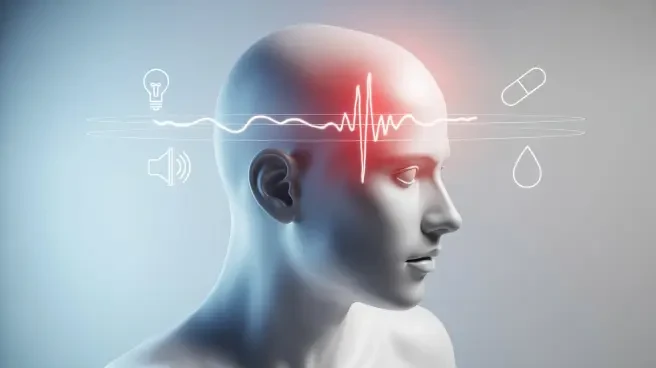Migraine is a neurological disorder characterized by intense, recurring headaches that usually affect one side of the head. The pain can be throbbing, long-lasting, and strong enough to limit daily activities, often accompanied by sensitivity to light and sound.
While headaches can occur for many reasons—fatigue, dehydration, or stress—migraines are a distinct medical condition that severely impacts quality of life. Unlike simple headaches, migraines may last 4 to 72 hours and cause both physical and psychological discomfort.
Symptoms can vary from person to person, but the most typical signs include:
- Pulsating, one-sided head pain
- Nausea and sometimes vomiting
- Sensitivity to light and sound
- Visual disturbances: blurred vision, flashing lights, zigzag lines
- Fatigue and weakness
- Difficulty concentrating and drowsiness
Chronic migraine is diagnosed if these attacks occur more than 15 days per month and requires medical attention.
The exact causes remain unclear, but several factors are known to trigger migraines:
- Genetics: Family history significantly increases the risk.
- Hormonal changes: Women often experience migraines during menstrual cycles or pregnancy.
- Stress: Emotional or mental strain can trigger attacks.
- Sleep disorders: Too little or too much sleep may provoke migraines.
- Diet: Foods like chocolate, cheese, caffeine, and alcohol are common triggers.
- Weather changes: Shifts in pressure or humidity may also play a role.
To reduce the intensity of migraine pain:
- Rest in a quiet, dark room
- Apply a cold compress to the forehead or eyes
- Practice calming breathing exercises
- Stay hydrated and avoid dehydration
- Drink soothing herbal teas (peppermint, chamomile)
These steps may provide temporary relief, but frequent migraines should always be discussed with a neurologist.
Migraine treatment is usually divided into two categories:
1. Pain relief and acute treatment – Paracetamol, ibuprofen, or triptans are commonly prescribed.
2. Preventive medications – Used long-term to reduce frequency and severity, always under medical supervision.
Alternative therapies such as aromatherapy, acupuncture, yoga, or massage may help support treatment but should never replace professional medical care.
Migraine is not 'just a headache'—it is a complex condition that affects mental, emotional, and social wellbeing. Effective management requires identifying both the symptoms and the triggers. A healthy lifestyle, balanced diet, good sleep hygiene, and stress management are key in preventing attacks.
Remember: Living with migraines can be challenging, but with the right approach, it becomes manageable and less disruptive.
Avis Pharmacy is one of Azerbaijan’s leading pharmacy chains and a pioneer in online medicine sales. Through its official platform Avismed.az, you can easily order medicines, vitamins, baby products, and medical supplies.
The company guarantees fast delivery, authentic products, and professional service. Whether through physical branches or digital platforms, Avis Pharmacy meets the healthcare needs of everyone.
Choose the right address for your health – order easily and receive your medicines quickly with Avis Pharmacy!
